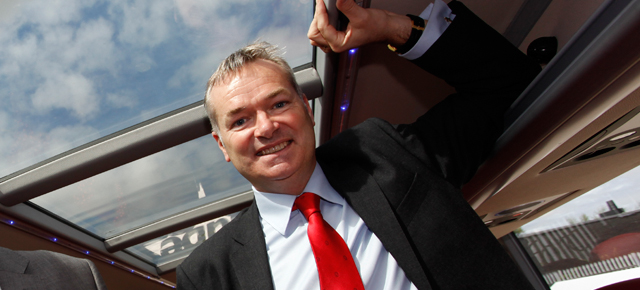Launching group’s new sustainability strategy, boss Martin Griffiths called for ‘radical behaviour change and incentives to reward the right choices’

Stagecoach has issued a blunt warning to governments to turn warm words on greener travel into practical actions that achieve “radical behaviour change”.
Publishing its roadmap to becoming a carbon neutral business by 2050 – Driving Net Zero: Better Places to Live and Work – this month, Britain’s biggest bus and coach operator said national and regional governments needed to address “contradictory policies and mixed messaging” over climate change action.
“The country will not deliver on its ambitions by grand strategies or technology change alone,” said Stagecoach chief executive Martin Griffiths.
“We need radical behaviour change and incentives to reward the right choices to make net zero a reality. We need to be more honest about the scale of the challenge and the changes we will need to make to how we live now.
We urgently need practical changes by national and regional government to address contradictory policies and mixed messaging currently being sent to citizens
“Governments need to get real and stop cherry-picking the easy wins. We urgently need practical changes by national and regional government to address contradictory policies and mixed messaging currently being sent to citizens.”
Griffiths called for an end to the “ludicrous” situation where some clean air zone plans “effectively tax bus passengers” but do nothing to address diesel cars.
He continued: “Our current tax system and approach to road management puts cars first and is directly resulting in higher fares for people doing the right thing and choosing greener bus travel.”
“The biggest opportunity to address climate change and protect our communities from extreme weather, poor air quality and the road traffic gridlock … is not from electrifying Britain’s transport system. It is from incentivising the country to switch from cars to greener and healthier public transport and active travel.”
This article appears in the latest issue of Passenger Transport.
DON’T MISS OUT – GET YOUR COPY! – click here to subscribe!







